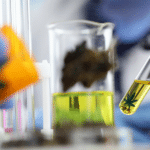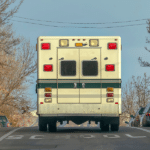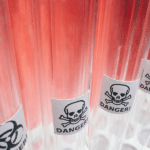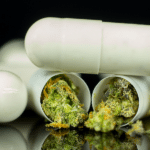In 2017, Michigan’s government founded a commission to recommend policy on cannabis and driving, specifically how to set THC limits.
Two years later, in March 2019, they released their conclusion: [T]he Commission finds there is no scientifically supported threshold of ∆9-THC bodily content that would be indicative of impaired driving
(emphasis added). They instead suggest the use of impairment test, although they recognize that these were designed for recognizing alcohol impairment, which is not the same as THC intoxication. Why can’t a simple breathalizer be used for cannabis, as is done for alcohol? There are two major issues. First, unlike alcohol, cannabinoids aren’t detectable in your breath — either blood or saliva samples are necessary. Second, blood concentration of THC doesn’t indicate the amount of THC in the brain or the user’s intoxication. It is currently unknown how to relate blood levels of THC to intoxication, thanks to factors like tolerance, the build-up of THC in the fat, and the different profiles of edibles, vaping, and sublingual administration.
Federal policy is zero-tolerance: it’s illegal to drive with any amount of THC in the blood. But the Michigan Supreme Court ruled in 2013 that the zero-tolerance policy does not apply to cannabis used legally under state law — being under-the-influence is necessary for prosecution. But exactly what constitutes under-the-influence
with respect to cannabis is still unclear. The Commission indicates that smoking THC-rich cannabis right before driving seems to increase crash risk by 20-35%. Accidents are less likely to be fatal when one of the drivers has THC in his or her bloodstream. Although this risk is relatively small, THC appears to seriously amplify the impairment from alcohol. The crash rate and risk of death among cross-faded drivers is much higher than drunk drivers.
Read report: Report from the Impaired Driving Safety Commission
Adrian Devitt-Lee is a research scientist and longtime Project CBD contributor. © Copyright, Project CBD. May not be reprinted without permission.







